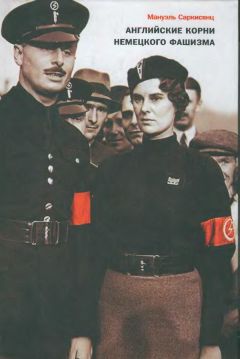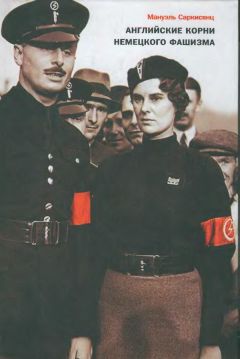1673
F. W. Hirst & Murray and Hammond (as reference 148), p. 152.
Joachim Kohler, Wagners Hitler, S. 338.
So vor allem schon bei Thomas Carlyle (above, reference 232b).
Adolf Hitler, Monologe (wie Anm. 443); Das Schwarze Korps, 5.1.1939: Strobl, p. 87. 1124a. Hannah Arendt, S. 292; oben wie Anm. 692, 710, 711, 714.
F. Brie, Imperialististische Stromungen in der enlischen Literatur (Halle, 1928), S. 116f: John Ruskin, Speech of 14. December, 1869; Peter Fryer, Black People in the British Empire (London, 1989), pp. 174, 181, 173; J. Rutherford, Forever England (London, 1997), p. 5; Contemporary Review, II (1869), p. 230 quoted by Christine Bolt, Victorian attitudes to Race, p. 230.
Philip Mason, Prospero's Magic. Some thoughts on Class and Race (London, 1962), p. 107; StrobI, The Germanic Isle, p. 95.
Josef Goebbels, «Erziehung und Fuhrerschicht»: Nationatsozialistisches Jahrbuch (Munchen, 1930), S. 180, 181.
Т. C. Worsley, Barbarians and Philistines. Democracy and the Public Schools (London, 1940), pp. 251, 252; R. Wilkinson, The Prefects. British Leadership and the Public School Tradition (1964), p. 84; Wingfield-Stratford, The Squire and his Relations (London, 1956), p. 395; John Mackenzie (Editor), Imperialism and Popular Culture (Manchester, 1986), p. 19.
Raymond Williams, George Orwell (London, 1971), S. 18; Thost, Als Nationalsozialist in England, S. 68, 85; Rosenberg, Der Mythus, S. 386.
David Newsome, Godliness and good learning (London, 1961), p. 2, 4, 38f, 37,98, 209.
Houston Stewart Chamberlain, Richard Wagner (Munchen, 1897), S. 496.
Friedrich Lange, Reines Deutschtum. Grundzuge einer nationalen Weltanschauung (Berlin, 1904), S. 237f.
Andreas Hillgruber, «Die Endlosung und das deutsche Ostimperium», in: Herteljahreshefte fiir Zeitgeschichte,XX(l972),S. 137f, 152, 153.
Helmut Bley, Kolonialherrschaft und Sozialstruktur in Deutsch Sudwestafrika = Hamburger Beitrage zur Zeitgeschichte, Bd. V (Hamburg, 1968), vgl. Bernard Semmel, Imperialism and Social Reform. English Social-Imperial thought 1895–1914 (London, 1960), p. 261, 42, 43.
Bley, S. 314.
Ibid., S. 260f.
Ibid., S. 261; Schmitt-Egner (wie Anm. 62a), S. 5.
Alfred Milner, The Nation and Empire. A Collection of Speeches and Addresses (London, 1913), pp. xiv, xliii, xl—xlii; H. Schroder, (wie Anm. 1113), S. 62.
B. Semmel, p. 251, 256; Thurlow, Fascism in Britain, p. 86; D. S. Lewis, Mosley, Fascism and British society, p. 203; Peter Hoffmann, Widerstand (wie Anm. 983a), S. 129; vgl. Bernard Semmel, Imperialism and Social Reform, p. 251, 256.
Lebzelter (wie Anm. 803), S. 27: London Times of 27. October 1924.
H. Grimm, Heynade (wie Anm. 12), IV, S. 23, 228.
Robert Caputi, Neville Chamberlain and Appeasement (London, 2000), p. 184; Lawrence James, Rise and Fall of the British Empire (London, 1994), p. 455.
Paul B. Rich, Race and Empire in British Politics (Cambridge, 1986); Scott Newton, Profits of Peace. Political economy of Anglo-German Appeasement (Oxford, 1996), pp. 4, 7, 151; Lawrence James, Rise and Fall of the British Empire, p. 455.
Franz Haider (wie Anm. 1013b), S. 17; Kimche, S. 11.
J. R. M. Butler. History of the second World War. The Grand Strategy, Vol. II (London, 1957), p. 15.
Maurice Cowling, The Impact of Hitler, British… policy 1933–1940 (Chicago, 1977), p. 9: PREM 1/276; Letter of Eden to N. Chamberlain of 31. January, 1938, quoted in Clive Ponting, 1940. Myth and Reality (London, 1990), p. 26.
Lawrence James, Rise and Fall of the British Empire (London, 1994), p. 455; cf. above, p. 214f.
Gunther Hecht, «Die Bedeutung des Rassegedankens in der Kolonialpolitik»: Deutscher Kolonialdienst, No. 12 (1937), S. 2, zitiert bei Horst Kuhne, Faschistische Kolonialideologie, S. 72; cf. Jack McCulloch, Black Peril, White Virtue: Sexual Crime in Southern Rhodesia, 1902–1935 (Bloomington, USA, 2000).
David Cannadine, Decline and Fall of the British Aristocracy (New York, 1990), p. 547; Earl of Portsmouth, A Knot of Roots (1965), pp. 141, 149–151.
Alfred Rosenberg, «Die rassische Bedingtheit», p. 340, quoted in G. Strobl, Germanic Isle. Nazi perceptions of Britain (Cambridge, 2000), p. 93.
Akten zur deutschen auswartigen Politik, Band VI (Baden-Baden, 1956), S. 565: 8. Juni, 1939.
Robert Shepherd, A Class Divided, Appeasement and the Road to Munich, 1938 (London, 1988), p. 117. Brigitte Hamann, Hitler's Vienna. A dictator's apprenticeship (New York, 1999), pp. 348f, 403, 57.
Joachim Kohler, Wagners Hitler. Der Prophet und sein Vollstrecker (Munchen, 1997), S. 248f, 12.
Ibid., S. 417; H. S. Chamberlain (wie Anm. 552), pp. 259, 374.
Joachim Kohler, Wagners Hitler, S. 385.
Georg Schott, H. S. Chamberlain, Seher des Dritten Reichs (Munchen, 1936), S. 8.
J. Goebbels (wie Anm. 546), I, S. 72f: 8. Mai 1926.
Gaines Post, Dilemmas of Appeasement. British Deterence and Defense 1934–1937 (Ithaca, N. Y. USA, 1993), p. 343.
Robert J. Caputi, Neville Chamberlain and Appeasement (London, 2000), p. 231.
Martin Gilbert & Richard Gott, The Appeasers (London, 2000), p. 370.
Rock, British Appeasement in the 1930s, S. 100.
Andreas Hillgruber, Hitlers Strategic (Frankfurt, 1965), p. 532; Carl Schmitt, Glossarium. Aufzeichnungen der Jahre 1947–1951). Herausgegeben von Eberhard Freiherrvon Medem (Berlin, 1991), p. 142: 1. May, 1948.





